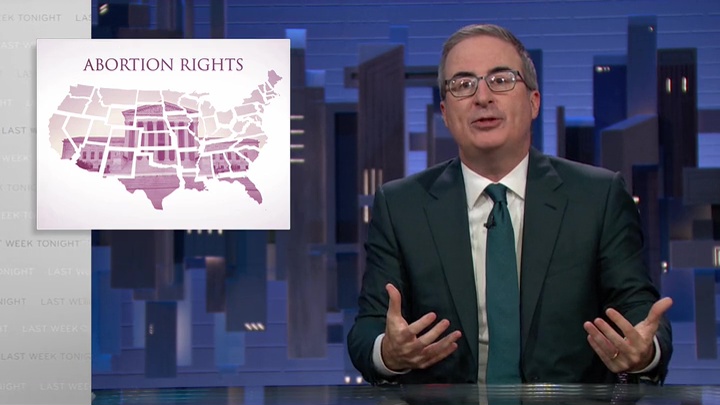I Am Against Abortion
by Pier Paolo Pasolini
I am a supporter of the Radical Party’s eight-point referendum, and I am prepared to join an immediate campaign in its favor. I share with the Radical Party an eagerness to see existing realities ratified, to see them formally fleshed out: that is the first principle of democracy.
I am, however, profoundly disturbed by the legalization of abortion, because I, like many others, consider it to be a legalization of homicide. In my dreams, and in my everyday life—and this is something that I have in common with all men—I live my prenatal life, my happy immersion in the maternal waters: I know that I already existed there. I will restrict myself to saying this because, with respect to abortion, I have more urgent things to say. The fact that life is sacred is obvious: it is a principle that is even stronger than any other principle of democracy, and no purpose can be served in belaboring this point.
The first thing I want to say, however, is this: with regard to abortion, this is the first and only instance in which Radicals and all the purest and most rigorous pro-abortion democrats base their arguments on Realpolitik and therefore resort to the “cynical” prevarications of ‘that’s the way it is’ and common sense.
While they have always asked themselves, first of all, and perhaps ideally (as is just), about what “real principles” they should defend, this time they did not.
Now, as they know very well, there is not a single case in which “real principles” coincide with the principles that most people consider to be their own personal rights. In the democratic context, of course, we struggle on behalf of the majority, that is, for civil society as a whole, but one finds that the majority, in its self-righteousness, is always wrong: because its conformism is always, by its very nature, brutally repressive.
Why don’t I think that the principles upon which the Radicals and progressives in general (in a conformist way) base their struggle for the legalization of abortion are “real”?
For a whole array of chaotic, tumultuous and emotionally charged reasons. I know, as I have already said, that the majority is already in favor, potentially, of the legalization of abortion (although in the case of a new “referendum”, many will vote against it and the radical “victory” will be much less impressive). In fact, legalized abortion—on this question there is no room for doubt—would be enormously convenient for the majority. Above all, because it will make having sex—heterosexual coupling—easier; there would be practically no obstacles to engaging in it. But this freedom of sexual intercourse for the “couple” such as it is conceived by the majority—this marvelous permissiveness towards it—who has tacitly desired it, who has tacitly promulgated it, and tacitly introduced it, so that it is now an irreversible trend in people’s habits? The consumerist power, the power of the new fascism. This power has seized for its own purposes the demands for freedom—let’s be frank—the liberal and progressive demands for freedom, and, making them its own, has neutralized them, and changed their nature.
Today the sexual freedom of the majority is in fact a convention, an obligation, a social duty, a social anxiety, an essential feature of the consumer’s quality of life. In short, the false liberalization of prosperity has created a situation that is as bad as and maybe even more unhealthy than the one that prevailed during the times of poverty. In fact, first of all, as a result of a sexual freedom “bestowed” as a gift by power, there is a real and authentic generalized neurosis. Ease of access has given rise to obsession; because it is an “induced” and imposed availability, deriving from the fact that the tolerance of power concerns only the sexual demand expressed by the conformism of the majority. It only protects the couple (not only, of course, the married couple): and the couple has therefore ended up becoming a feverish, paroxysm-stricken condition, rather than becoming a sign of freedom and happiness (as it was in the democratic hopes). Second: everything that is sexually “different” is on the other hand ignored and rejected with a violence that can only be compared to the Nazi concentration camps (no one now remembers, naturally, that people who were sexually different ended up in those camps). Of course, with a word, the new power could extend its false tolerance even to such minorities. It is not necessary to rule out the possibility that sooner or later this will be discussed openly on television. After all, the elites are much more tolerant towards sexual minorities than in the past, and truly in a sincere way (and also because it gratifies their conscience). On the other hand, however, the vast majority (the masses: fifty million Italians) have been converted to an intolerance that is more primitive, violent and sinister than any that has ever been seen in Italian history. What has taken place during the last few years, anthropologically speaking, is a vast phenomenon of renunciation: the Italian people, along with poverty, do not even want to remember their “real” tolerance: that is, they no longer want to remember the two phenomena that have been most characteristic of their entire history. The new power wants to erase that history forever. And it is these same masses (now so prone to blackmailing, beating, and lynching minorities) who, by a decision of power, are now breaking through the barriers of the old clerical-fascist conventions and are ready to accept the legalization of abortion and therefore the abolition of every obstacle that stands in the way of the relationship of the celebrated couple.
Now, everyone, from the Radicals to Fanfani (who, this time, skillfully stealing a march on Andreotti, is laying the foundations for an extremely prudent theological renunciation, right under the nose of the Vatican), everyone, I say, when they speak of abortion, refrain from speaking about what logically must precede it, i.e., sexual intercourse.
This is an extremely significant omission. Sexual intercourse—with all the permissiveness in the world—is still taboo, that much is clear. But when we consider the Radicals, it is certainly not correct to explain this omission with reference to a taboo: it indicates instead the omission of a sincere, rigorous and complete political examination. For sexual intercourse is political. Therefore one cannot speak in a concrete political sense about abortion, without also considering sexual intercourse as political as well. One cannot see the signs of a social and political dimension in abortion (or the birth of children) without seeing the same signs as well in its immediate antecedent, or rather, “in its cause”, that is, in sexual intercourse.
Today, sexual intercourse has become, politically, something very different from what it was in the past. Today’s political context is now one of tolerance (and therefore sexual intercourse is a social obligation) while the political context of the past was repression (and therefore sexual intercourse, outside of marriage, was scandalous). This is therefore a first error of the Realpolitik, of the compromise with common sense, that I noted in the activities of the Radicals and the progressives in their struggle for the legalization of abortion. They isolate the problem of abortion, with its specific factual situations, and give us a distorted picture: one that suits them (in good faith, this would be crazy to dispute).
The second, more serious, error, is the following: the Radicals and other progressives who are fighting in the front ranks for the legalization of abortion—after having isolated it from sexual intercourse—situate it in a strictly contingent, and furthermore, interlocutory, problematic (in this case, the Italian problematic). They reduce it to a purely practical issue, one that must be confronted precisely with a practical attitude. But this (as they know very well) is always wrong.
The context within which this problem of abortion must be considered is much broader and extends far beyond the ideologies of the parties (which, if they were effectively embraced, would result in their own destruction: see Alfredo Todisco’s Breviario di ecologia. Problemi attuali. [Handbook of Ecology. Current Problems]). The context within which abortion must be understood is precisely the ecological context: it is the demographic tragedy that, on the ecological horizon, looms as the most serious threat to the survival of humanity. In this context, the question of abortion—in its ethical and legal dimensions—is transformed and viewed in a totally different light; and, from this perspective, even some kind of legalization may be justified. If the legislators did not always arrive too late, and if they were not so obscurely deaf to the imagination to remain faithful to the good common sense of their own pragmatic abstraction, they would resolve everything by including the crime of abortion under the broader category of euthanasia, so that it would benefit from a special series of “mitigating” arguments of an ecological nature. But this would not by any means cause it to cease to be formally a crime and to appear as such before one’s conscience. And this is the principle that my Radical friends should defend, instead of plunging (with a quixotic honesty) into an extremely sensible but rather pious confusion of single mothers or feminists, who are in fact preoccupied with “another” (and more serious and worrying) problem. What is the framework, in reality, in which this new concept of the crime of euthanasia should be understood?
This one: in the past, the couple was blessed, today it is accursed. Convention and imbecile journalists still get misty-eyed over the “sweet little couple” (it is in this abominable way that they refer to it), not realizing that it is a sweet little criminal conspiracy. And the same goes for weddings: in the past they were occasions for celebration and the institution itself—so stupid and so sinister—was actually overshadowed by the reality that it was in fact a joyful and festive event. Now, however, weddings all seem like gray, hastily conducted funeral rites. The reason for the terrible things that I am saying is clear: in the past, the “species” had to struggle to survive, and therefore births “had to” exceed deaths. Today, however, the “species”, if it wants to survive, must see to it that births do not exceed deaths. Therefore, each child born in the past, being the promise of life, was a blessing; each child born today, however, is a contribution to the self-destruction of humanity, and is therefore a curse.
We have thus arrived at the paradox that what is called unnatural is natural and what is called natural is unnatural. I recall that DeMarsico (co-author of the Codice Rocco), in a brilliant argument in defense of one of my films, called Braibanti a “pig”, declaring that any argument to the effect that the homosexual relationship is useless to the survival of the species is inadmissible in a court of law: now, in order to be consistent, he should in fact assert the contrary: it is the heterosexual relationship that figures as a threat to the species, while the homosexual relationship represents the prospect of its preservation.
To conclude: prior to the world of pregnancy and abortion, there is the world of sexual intercourse: and it is the world of sexual intercourse that forms and conditions the world of pregnancy and abortion. Anyone who is politically concerned with the world of pregnancy and abortion and does not consider the ontological priority of the world of sexual intercourse—and therefore does not raise it as a topic of discussion—is a meanspirited, self-absorbed [qualunquistico] realist. I have outlined how the world of sexual intercourse stands in Italy today, but I would like to conclude by summarizing my views.
This world of sexual intercourse includes a totally passive, and at the same time violent, majority, which considers all its institutions, whether codified or implicit, as untouchable. Its basis is still clerical-fascist, with all the usual associated clichés. The idea of the absolute privilege of normality is as natural as it is vulgar and even criminal. Everything there is preconceived and conformist and is established as a “right”: even that which contravenes this “right” (including the tragedy and implicit mystery of the sexual act) is assumed in a conformist way. Due to inertia, the guide for all this majority violence is still the Catholic Church. Even in its progressive and extremist wings (read the horrible chapter beginning on page 323 of The Church and Sexuality by the enlightened progressive S. H. Pfurtner). Except that … except that in the last decade the civilization of consumerism has intervened, that is, a new falsely tolerant power that has promoted the couple on a gigantic scale by privileging all the rights of its conformism. This power is not interested, however, in a couple that creates proles (proletarians), but a consumerist couple (petty bourgeois): in pectore*, this already implies the idea of the legalization of abortion (just as it already implies the idea of the ratification of divorce).
It does not seem to me that the pro-abortion forces, in relation to the problem of abortion, have taken all of this in consideration. It seems to me, on the contrary, that they, in relation to abortion, suppress the question of sexual intercourse and therefore accept it— due to their embrace of Realpolitik, I repeat, in a diplomatic and therefore culpable silence—in its totally static, institutional and “natural” character.
My extremely reasonable opinion, however, is this: instead of fighting against this society that condemns abortion to repression on the plane of abortion, we must fight against this society on the plane of the cause of abortion, that is, on that of sexual intercourse. It is a question—this much is clear—of two “rearguard” struggles: but at least the struggle “on the plane of sexual intercourse” has the merit, besides being more logical and more rigorous, of harboring a larger number of potential implications.
We must fight, first of all, against the “false tolerance” of the new totalitarian power of consumerism, and distinguish ourselves from it with all the indignation it calls for; and then we have to impose the need to fight against the rearguard of this still clerical-fascist power, by fighting for a whole series of “real” liberalizations concerning precisely sexual intercourse (and therefore its consequences): contraceptives, the pill, different techniques of lovemaking, a modern morality of sexual honor, etc. It would be enough for all these ideas to be disseminated democratically by the press, and especially on television, and the problem of abortion would be substantially neutralized, even if it would still be, as it must be, wrong and therefore a problem for conscience. Is all of this utopian? Is it crazy to think that an “authority” could appear on television to teach “different” techniques of lovemaking? In any event, it is certainly not the men against whom my polemic is directed who would be frightened by this problem. As far as I know, for them what counts is the rigor of the democratic principle, not matters of fact (this is a stark reality for any political party).
Finally: many people—lacking the virile and rational capacity for understanding—will accuse my contribution of being personal, individual, and expressing a minority viewpoint. So?
Published in Corriere della Sera, January 19, 1975
* Latin: “In the heart” or “In the breast”.
* * *
by Pier Paolo Pasolini
[…] Who is in favour of abortion? No one evidently. One would have to be mad to be in favour of abortion. The problem is not to be for or against abortion but for or against its legalization. Naturally, as I am against abortion, I cannot be for indiscriminate, total, fanatical, rhetorical abortion. As if to legalize abortion was a joyful, peace-bringing victory. I am for prudent and painful legislation. That is to say, in terms of practical politics on this occasion I share the position of the Communists rather than that of the radicals.
Why do I feel the guilt of abortion with particular anguish? That, too, I have stated clearly. Because abortion is a problem of the vast majority which regards its cause, sexual intercourse, in such an ontological way as to render it mechanical, banal, irrelevant by an excess of naturalness. In this there is something that obscurely offends me. It confronts me with a terrifying reality. (I was born and lived in a repressive, clerico-fascist world).
All this has given my statements on abortion a certain ‘colouring’, which derives from my particular and different experience of life and of sexual life.
Everyone leapt on me like mad dogs, not because of what I said (which was of course entirely reasonable) but because of that ‘colouring’. Stupid, blind, mad dogs. All the madder, more stupid and blind the more (as was evident) I asked for their solidarity and comprehension. Because I am not talking about Fascists. I am speaking about ‘enlightened people’, ‘progressives’. I am speaking about ‘tolerant’ persons. So that is the proof of what I was telling you. So long as ‘the odd one out’ lives ‘his difference in silence’, shut up in the mental ghetto assigned to him, all is well; and everyone feels gratified at the tolerance they are granting him. But if he says a single word about his own experience as someone ‘different’, or merely dares to pronounce ‘coloured’ words ‘coloured’ by his own experience as someone ‘different’, there is an outbreak of lynching just as in the darkest clerico-fascist times. The most vulgar contempt, the worst schoolboy jokes, the fiercest incomprehension, cast him into degradation and shame.
[…]
20 March 1975




1 thought on “Pier Paolo Pasolini on Abortion”
Hi, what’s the name of the translator? Best, Frida